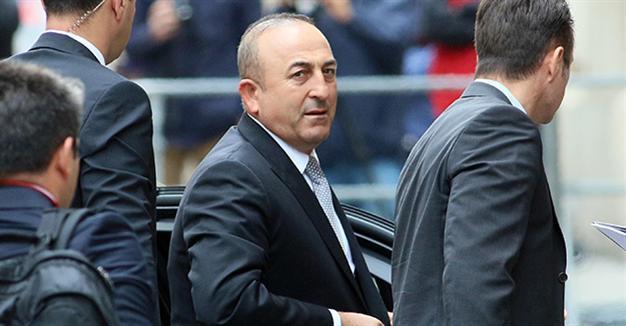I will resign if evidence of link between Turkey, ISIL emerges: Turkish FM
ANKARA - Anadolu Agency

Turkish Foreign Minister Mevlüt Çavuşoğlu arrives for Libya talks in Vienna, Austria, Monday May 16, 2016 - AP photo
Turkish Foreign Minister Mevlüt Çavuşoğlu has told his Russian counterpart, Sergei Lavrov, that he will resign if Moscow can show any evidence that Turkey has been aiding the Islamic State of Iraq and the Levant (ISIL).
“I am ready to resign if you have any evidence that Turkey is helping Daesh,” Çavuşoğlu said at the International Syria Support Group (ISSG) meeting on May 17 in Vienna, using an Arabic acronym for the jihadist group.
“If you cannot prove your claims, then I invite you to Antalya [Çavuşoğlu’s hometown] as a guest for the rest of your life,” he added.
Russia has repeatedly accused Ankara of helping ISIL smuggle oil via its Syrian border.
Erdoğan has previously condemned the claims, which he described as “despicable.”
“You are a serious diplomat, and one of the most experienced diplomats among us. You should not rely upon such frivolous claims,” Çavuşoğlu told Lavrov.
He also stressed during the meeting that he disagrees with claims that Turkey turned a blind eye to ISIL, according to witnesses of the exchange between the two.
A total 24 representatives, from 20 countries and four international organizations attended the meeting in Vienna, aimed at seeking a solution to the five-year Syrian war.
Relations between Turkey and Russia have been tense since Nov. 24, 2015, when the former downed a warplane of the latter on its border with Syria on the grounds of an airspace violation. Turkey claims that it warned the Russian aircraft multiple times before shooting it down, while Russia denies any warnings reaching its side.
In response to Çavuşoğlu’s challenge to Lavrov, Russian Foreign Ministry spokeswoman Maria Zakharova said May 18 that he should not resign but go to jail for helping ISIL.
“It should have been done after Turkey downed a Russian plane. One does not leave office for links to Daesh; one goes to jail,” Zakharova wrote on Facebook.
Moscow imposed a number of restrictive measures on Turkey in response to what Russian President Vladimir Putin classified as a “stab in the back.”
Russia’s retaliatory measures against Ankara include, in particular, restrictions on the activities of Turkish organizations in Russia, an embargo on Russian employers hiring Turkish citizens and a ban on certain food imports.
